 W
WAdolf Abrahamowicz was an Austro-Hungarian Armenian writer who wrote in the Polish language. He was a landowner, but lived of his life in Lviv. He worked with many directors and actors, especially with Ryszard Ruszkowski. His farce and slapstick was very popular in the Polish entertainment repertoire of the nineteenth century.
 W
WYervant Aghaton, was a prominent Armenian political figure, agronomist, publisher, writer, and one of the founding members of the Armenian General Benevolent Union (AGBU). He was the son of Krikor Aghaton.
 W
WGhazaros (Lazarus) Aghayan was an Armenian writer, educator, folklorist, historian, linguist and public figure.
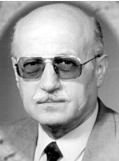 W
WKevork Vartani Ajemian (Adjemian) was a prominent Lebanese-Armenian writer, journalist, novelist, theorist and public activist, and long-time publisher of the Beirut-based literary, artistic and general publication Spurk. Ajemian was a co-founder of the Armenian Secret Army for the Liberation of Armenia (ASALA) military organization.
 W
WAra Aloyan is an Armenian poet, writer, musician, pedagogue, journalist, and member of Armenian writers' union of Gegharkunik region.
 W
WHarutiun Alpiar was an Ottoman Armenian journalist and humorous writer.
 W
WAmirdovlat Amasiatsi, also called Amirdovlat of Amasia, was a 15th-century Armenian physician and writer. He wrote several works on medicine and science, some aimed at professional audiences and some at ordinary people. All his works were written in Middle Armenian, making them accessible to ordinary readers and not just to scholars.
 W
WArmen Amiryan is an associate professor and the executive director of Public Radio of Armenia. On 21 September 2015, he was awarded the title of Honored Worker of Culture of the Republic of Armenia. Until his resignation, He worked as the Minister of Culture of the Republic of Armenia until he resigned on 2 May 2018.
 W
WLevon Ananyan was an Armenian journalist and translator.
 W
WVakhtang Stepani Ananyan was an Armenian writer. Ananyan was born in Poghoskilisa village, near Dilijan. His first work was published in the journal Pioner in 1927.He was a participant of World War II. He was awarded the Armenian State Prize in 1970. He died in 1980 in Yerevan, where a school is named after him.
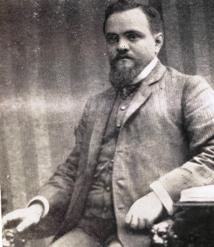 W
WMissak Kouyumjian, better known by his pen name Arandzar, was an Armenian short story writer, poet, and principal.
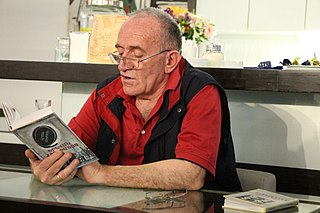 W
WArmen Shekoyan is an Armenian writer, poet and journalist.
 W
WYacoub Artin was an ethnic Armenian educator and scholar working in Egypt.
 W
WSargis Mubayeajian, better known by his pen name Atrpet, was a prolific and multifarious Armenian writer.
 W
WAksel (Axel) Bakunts was an Armenian prose writer, film-writer, translator and public activist.
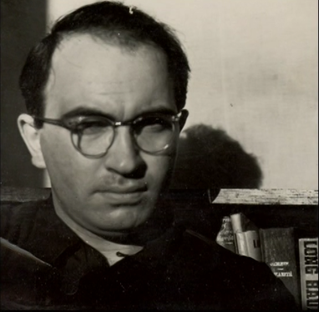 W
WAlbert Isaac Bezzerides was an American novelist and screenwriter, best known for writing films noir and action motion pictures, especially several of Warners' "social conscience" films of the 1940s.
 W
WYeghishe Charents was an Armenian poet, writer and public activist. Charents' literary subject matter ranged from his experiences in the First World War, socialist revolution, and frequently Armenia and Armenians. He is recognized as "the main poet of the 20th century" in Armenia.
 W
WArshag Chobanian, was an Armenian short story writer, journalist, editor, poet, translator, literary critic, playwright, philologist, and novelist.
 W
WDikran Chökürian was an ethnic Armenian writer and teacher, editor of the journal Vostan (Ոստան) and a victim of the Armenian Genocide.
 W
WDerenik Karapeti Demirchian or Derenik Demirchyan was an Armenian writer, novelist, poet, translator and playwright.
 W
WSamvel Avanesovich Grigoryan was Soviet Armenian poet and translator.
 W
WGeorge Ivanovich Gurdjieff was a Russian philosopher, mystic, spiritual teacher, and composer of Armenian and Greek descent, born in Alexandropol, Russian Empire. Gurdjieff taught that most humans do not possess a unified consciousness and thus live their lives in a state of hypnotic "waking sleep", but that it is possible to awaken to a higher state of consciousness and achieve full human potential. Gurdjieff described a method attempting to do so, calling the discipline "The Work" or "the System". According to his principles and instructions, Gurdjieff's method for awakening one's consciousness unites the methods of the fakir, monk and yogi, and thus he referred to it as the "Fourth Way".
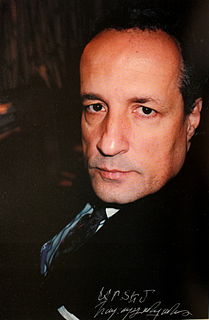 W
WArtem Harutyunyan is an Armenian writer, translator, critic, Doctor of Philology, Professor, member of Writers Union of Armenia,
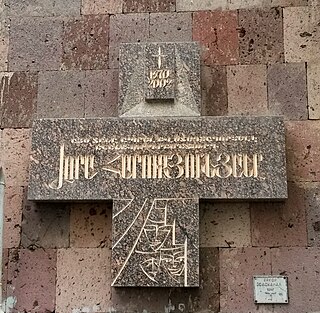 W
WZhora "Gevorg" Saghateli Harutyunyan was an Armenian writer and playwright, awarded by the Renowned activist of arts of Armenia official title, the State Prize of Armenia, "Gabriel Sundukian" and "Artavazd" Prizes. Vardan Ajemian was his first supporter as a theater activist. Harutyunyan is an author of many comedies and plays, which were staged in Armenia and abroad. He headed the Playwright's Union of Armenia. Since 1965 he directed the Armenian branch of the USSR Literary Fund. A member of Writers Union of Armenia committee.
 W
WArtashes Piraghayi Kalantarian was an Armenian writer, publicist, journalist and playwright.
 W
WGenrikh Kasparyan is considered to have been one of the greatest composers of chess endgame studies. Outside Armenia, he is better known by the Russian version of his name Genrikh Moiseyevich Kasparyan or Kasparian.
 W
WMartiros Kavoukjian was an Armenian architect, researcher, Armenologist and historian-archaeologist who has written various books on ancient Armenian history. He is best known for his account of Armenian prehistory in Armenia, Subartu And Sumer, published in 1987 in both English and Armenian.
 W
WSamuel Khachikian was an Iranian film director, screenwriter, author, and film editor of Armenian descent. He was one of the most influential figures of Iranian cinema and was nicknamed "Iran's Hitchcock".
 W
WSero Nikolai Khanzadyan was an Armenian writer.
 W
WHayk Sargsi Kotanjian is an Armenian military diplomat, academic and political adviser. Kotanjian is the author of several monographs in Russian, English and German as well as numerous articles on crisis management, ethnic conflict, security, defense and strategic studies, and cyberpsychology. Since 2005, he has headed the Institute for National Strategic Studies (INSS) in Yerevan and since 2016 has been the Head of the National Defense Research University. He also chairs the Political Science Association and the Board of Conferment of Academic Degrees in Political Science and International Relations of the National Academy of Sciences of Armenia.
 W
WShavarsh Krissian was an athlete, writer, publicist, journalist, educator, and editor of Marmnamarz, the first sports magazine of the Ottoman Empire. He is considered one of the founders of the Armenian Olympics and the Homenetmen Armenian sports organization. He was a victim of the Armenian Genocide.
 W
WGurgen Mahari was an Armenian writer and poet. His most significant works include the semi-autobiographical novella Barbed Wires in Blossom (1968) and the novel Burning Orchards (1966), which is set in the writer's hometown of Van on the eve of the Armenian Genocide.
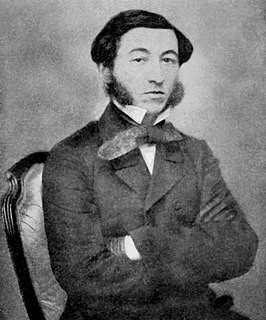 W
WMikayel Nalbandian was an Armenian writer, poet, political theorist and activist.
 W
WMichael Hovhannisyan, known by the pen name Nar-Dos, was an Armenian writer.
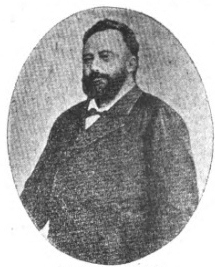 W
WKrikor Odian was an Ottoman Armenian jurist, politician, and writer.
 W
WNikol Vovayi Pashinyan is an Armenian politician serving as Prime Minister of Armenia since 8 May 2018.
 W
WTsvetana Paskaleva is an Armenian-Bulgarian journalist, documentary filmmaker, and a member of the International Documentary Association. She was awarded the 1994 bronze plaque by the Columbus International Film & Video Festival for her documentary work.
 W
WMarine Petrossian is an Armenian poet, essayist and columnist.
 W
WAlvard Petrossyan is an Armenian writer, philologist and publicist.
 W
WMariam Petrosyan is an Armenian painter, cartoonist and Russian-language novelist. She is most well known as the author of the award-winning novel The Gray House (2009), translated into eight languages.
 W
WVardges Petrosyan was an Armenian writer of fiction and drama.
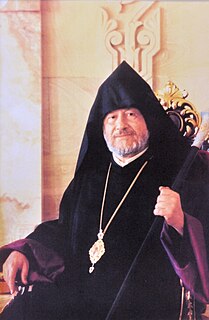 W
WArchbishop Nerses (born Hakob Pozapalian was one of the senior bishops of the Armenian Apostolic Church.
 W
WVahram Sahakian is an Armenian dramatist, film director and actor.
 W
WMarietta Sergeevna Shaginian was a Soviet writer, historian and activist of Armenian descent. She was one of the "fellow travelers" of the 1920s led by the Serapion Brotherhood and became one of the most prolific communist writers experimenting in satirico-fantastic fiction. She was born and died in Moscow.
 W
WArshaguhi Teotig was an Armenian social worker, educator, publicist, writer, and translator.
 W
WValerie Toranian is a French journalist and the editor-in-chief of the fashion magazine Elle in France. She is also the founder of Nouvelles d'Arménie, a French-Armenian journal. She is the head of the Elle Foundation in France and the general manager of the Revue des deux Mondes.
 W
WHovik Vardoumian is an Armenian short story writer and novelist.
 W
WAvedis Yapoudjian, is an Armenian journalist, historian and writer.
 W
WEznik of Kolb, was an Armenian Christian writer of the 5th century.
 W
WGostan, Constant, or Kostan Zarian was an Armenian writer who produced short lyric poems, long narrative poems of an epic cast, manifestos, essays, travel impressions, criticism, and fiction. The genre in which he excelled, however, was the diary form with long autobiographical divagations, reminiscences and impressions of people and places, interspersed with literary, philosophical and historical meditations and polemics.
 W
WStepan Yeghiayi Zoryan (Arakelyan) was a Soviet Armenian writer.